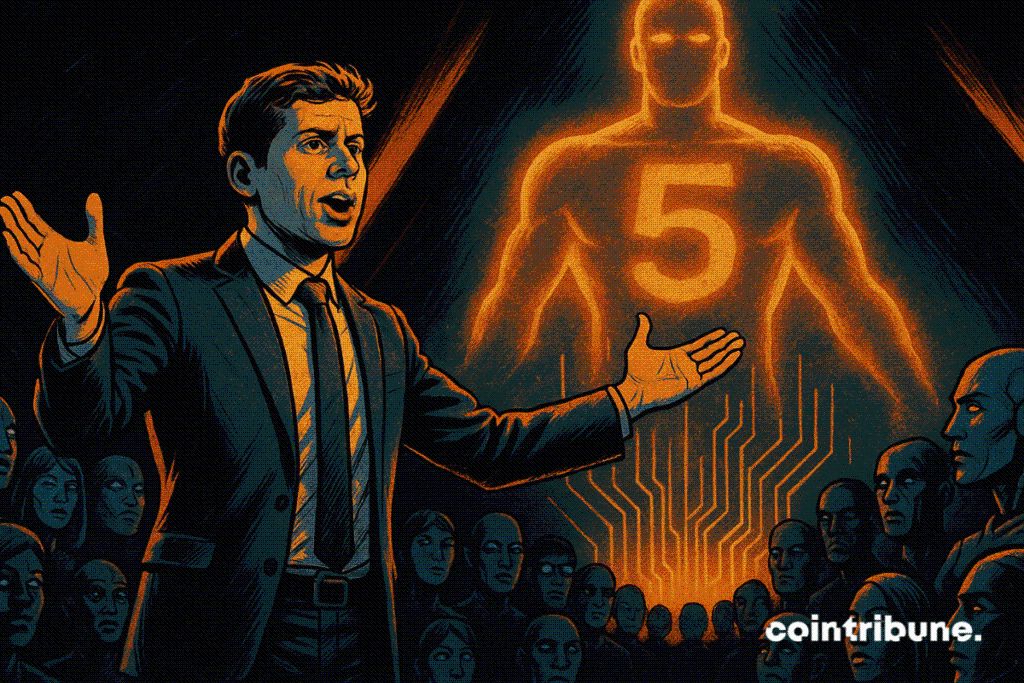Sam Altman Addresses OpenAI GPT-5 Transition and Shares Long-Term Strategy During AMA
During a live “Ask Me Anything” session held on Tuesday, OpenAI Chief Executive Sam Altman engaged directly with users to address their questions and concerns. The event featured a combination of apologies for previous issues and a detailed outline of the company’s upcoming direction. Altman used the opportunity to acknowledge challenges while presenting a broad vision for OpenAI’s future development and strategic goals.

In brief
- Sam Altman held a live AMA addressing GPT-5 transition issues and outlined steps to improve communication and model performance.
- He acknowledged past challenges while presenting OpenAI’s plans to make the AI more useful for a wider range of users.
- OpenAI updated its organizational structure and partnerships with Microsoft while emphasizing user privacy and responsible AI use.
OpenAI Addresses GPT-5 Hurdles and Adult Content Access
The CEO during the live session addressed the GPT-4o to GPT-5 transition in August, admitting the process had been mishandled, especially in communicating safety filter changes. He explained that the company had learned from these errors and intends “to do much better in the future, both about continuity and about making sure the model gets better for most users, not just for people using AI for science or coding.”
Altman also clarified the recent changes to OpenAI’s adult content policies. While the AI had previously been restricted from generating erotic material, starting in December verified adult users will be able to access this feature. He emphasized that the goal is to give users flexibility, letting them interact with the AI in different ways, and ensuring adult users are trusted to use the services responsibly.
OpenAI Charts Ambitious AI Growth and Platform Expansion
Aside from addressing past challenges, Altman turned the discussion to OpenAI’s long-term vision , highlighting the company’s ambitions for AI development and platform growth:
- OpenAI is working on AI systems that can reason and generate new scientific insights, with the potential to contribute to minor discoveries by 2026 and more significant breakthroughs by 2028.
- The company is expanding beyond a single chatbot into a broader AI platform that encourages innovation driven by users.
- OpenAI continues to prioritize user privacy, recognizing that many people entrust its systems with sensitive information.
Massive Computing Expansion and Plans for Legacy Models
The CEO also outlined OpenAI’s extensive computing initiatives, including financial commitments exceeding $1.4 trillion toward a 30-gigawatt network, with the first component being the Stargate data center in Abilene, Texas. He stated, “Our goal is to build what we call an infrastructure factory—able to turn out about a gigawatt of compute every week.” He added that the company’s aim is to “drive the cost down to roughly $20 billion per gigawatt over a five-year cycle.”
Regarding older GPT models, the CEO stated that they will not be released as open-source due to their size and inefficiency. However, these earlier models may eventually be shared in a limited way to showcase technological progress.
OpenAI Structure Updates and Microsoft’s AI Stake
Meanwhile, on Tuesday, OpenAI revealed updates to its organizational structure. The nonprofit OpenAI Foundation will now oversee OpenAI Group PBC, the company’s for-profit arm structured as a public benefit corporation. The Foundation holds 26% of OpenAI Group, while current and former employees and investors collectively own 47%.
Microsoft now holds a 27% stake , valued at around $135 billion, and retains exclusive rights to OpenAI’s most advanced AI models, including future systems up to and beyond artificial general intelligence, with these rights extended through 2032 and safety measures applied.